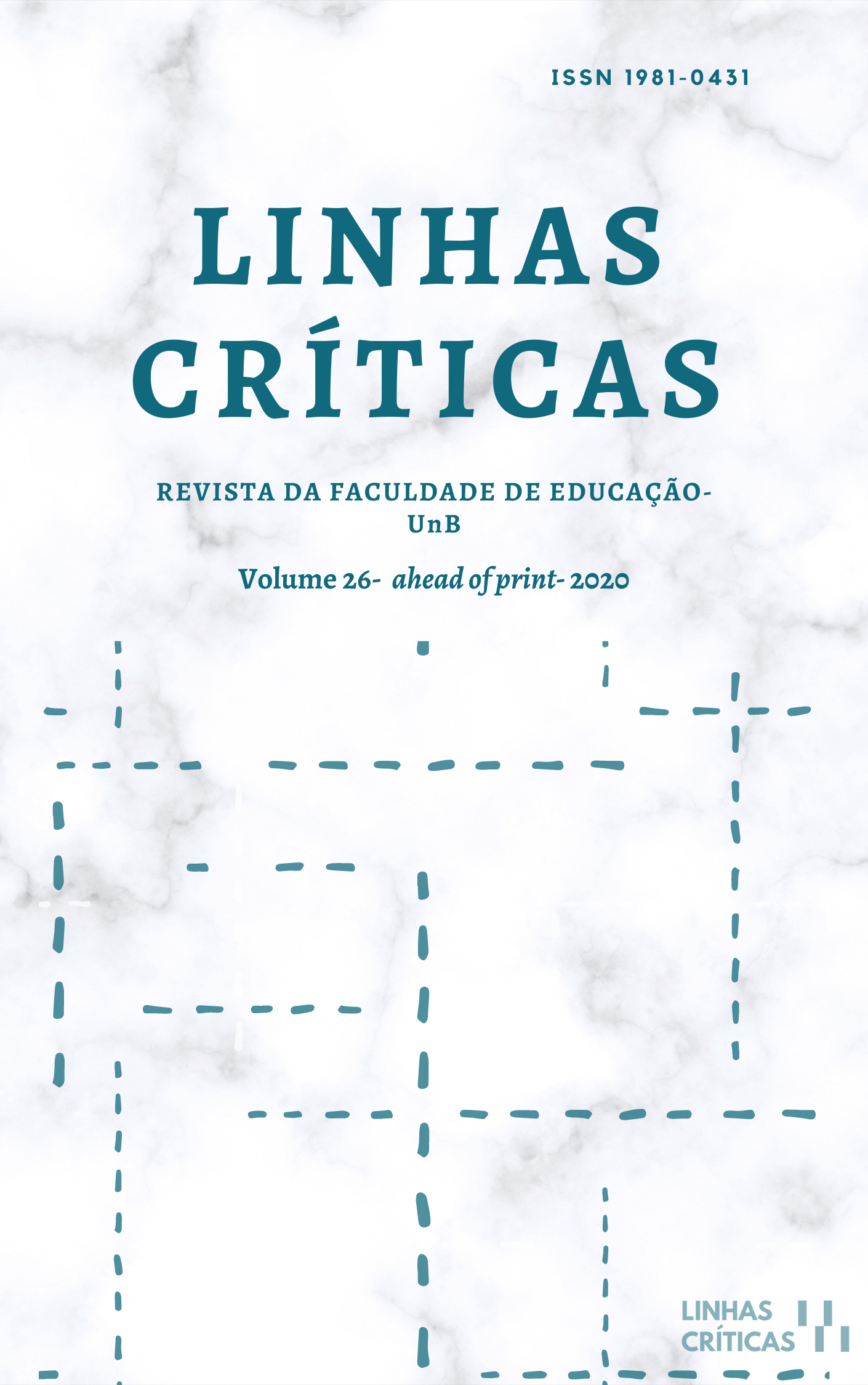Intercultural pedagogical practice
alterity as a didactic principle in sign language teaching
DOI:
https://doi.org/10.26512/lc.v26.2020.32971Keywords:
Interculturality, Otherness, Sign Language TeachingAbstract
In this study it is analyzed the teaching methods utilized by a listener teacher of Sign Language in university. It is a qualitative research based on the interculturality theory. We did individual and semi-structured interviews. The results were organized in categories: i) Teacher training; ii) Sign Language in higher education. The results point that the teaching of Sign Language happens in the critical perspective; in the dialogical perspective too; there is use of a concept of education in the principles of otherness; Sign Language is linked to the cultural context of different subjects. It was concluded that understanding the other as a subject that constitute ourselves is an intercultural trait in the pedagogical practice of the Sign Language teacher.
Downloads
References
Albres, N. A. (2016). Ensino de Libras: aspectos históricos e sociais para a formação didática de professores. Appris.
Antonio, L. C. O., Kelman, C. A., & Mota, P. R. (2020). Convergências e divergências do perfil do TILSP na educação básica e superior. Linhas Críticas, 26, e26434. https://doi.org/10.26512/lc.v26.2020.26434
Brasil. (2002). Lei 10.436 de 24 de abril de 2002 (Dispõe sobre a Língua Brasileira de Sinais - Libras e dá outras providências). Presidência da República. Casa Civil. http://www.planalto.gov.br/ccivil_03/LEIS/2002/L10436.htm
Brasil. (2005). Decreto nº 5.626 de 22 de dezembro de 2005 (Regulamenta a Lei nº 10.436, de 24 de abril de 2002, que dispõe sobre a Língua Brasileira de Sinais - Libras, e o art. 18 da Lei nº 10.098, de 19 de dezembro de 2000). Presidência da República. Casa Civil. http://www.planalto.gov.br/ccivil_03/_ato2004-2006/2005/decreto/d5626.htm
Candau, V. (2009). Educação intercultural na América Latina: entre concepções, tensões e propostas. 7letras.
Fleuri, R. M. (2001). Desafios à educação intercultural no Brasil. Educação, Sociedade e Cultura, 16, 45-62. https://www.fpce.up.pt/ciie/revistaesc/ESC16/16-2.pdf
Fleuri, R. M. (2018). Educação Intercultural e Formação de Educadores. CCTA.
Freire, P. (1989). Educação como prática da liberdade. Paz e terra.
Freire, P. (1996). Pedagogia da autonomia: saberes necessários à prática educativa. Paz e terra.
Gil, A. C. (2008). Métodos e técnicas de pesquisa social. Atlas.
Ludwig, A. C. W. (2009). Fundamentos e prática de metodologia cientifica. Vozes.
Minayo, M. C. S. (1994). Ciência, Técnica e Arte: O desafio da pesquisa social. Em M. C. S. Minayo (Org.). Pesquisa Social: Teoria, Método e Criatividade (pp. 9-21). Vozes.
Oliveira, I. A. (2011). Paulo Freire e a educação intercultural. Em V. Candau (Org.). Diferenças culturais e educação: construindo caminhos (pp. 35 - 57). 7Letras.
Oliveira, I. A. (2015). Paulo Freire: a gênese da educação intercultural no Brasil. CRV.
Oliveira, I. A., & Mota Neto, J. C. (2011). Construção de Categorias de Análise na Pesquisa em Educação. Em M. I. Marcondes, I. A. Oliveira, & E. Teixeira (Orgs.). Abordagens Teóricas e Construções Metodológicas na pesquisa em Educação (pp. 161-179). EDUEPA.
Published
How to Cite
Issue
Section
License
Copyright (c) 2020 Huber Kline Guedes Lobato, José Anchieta de Oliveira Bentes, Fábio Augusto Teixeira Rodrigues, Lucas Silva Pantoja

This work is licensed under a Creative Commons Attribution 4.0 International License.
Authors who publish in this journal agree to the following terms:
-Authors maintains the copyright and grants the journal the right of first publication, the work being simultaneously licensed under the Creative Commons Attribution License which allows the sharing of the work with recognition of the authorship of the work and initial publication in this journal.
- Authors are authorized to enter into additional contracts separately, for non-exclusive distribution of the version of the work published in this journal (eg publish in institutional repository or as a book chapter), with acknowledgment of authorship and initial publication in this journal.
-Authorers are allowed and encouraged to publish and distribute their work online (eg in institutional repositories or on their personal page) at any point before or during the editorial process, as this can generate productive changes as well as increase the impact and the citation of published work (See The Effect of Free Access).



